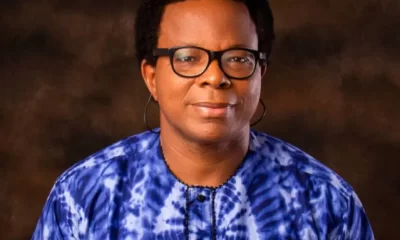Global Issues
Dealing With The Productive Collaboration Challenge In Africa -By Jerome-Mario Utomi

The government played a very key role in attracting foreign investments. We built the infrastructures and provided well-planned industrial estates, equity participation in industries, fiscal incentives and export promotion. Most important, we established good labour relations and sound macroeconomic policies-the fundamental that enable private enterprises to operate successfully- Lee Kuen Yew, Former Prime Minister of Singapore
The leadership challenge is clear. It will be impossible, in the words of JANE NELSON to; achieve the Sustainable Development Goals without accelerating and scaling private sector engagement and collective action by business, government and civil society. Action by individual companies is necessary but not sufficient to drive transformational and systemic change toward sustainable development. Collaboration will be essential. It will also be needed on a cross-sector or multi-stakeholder basis between companies, governments and civil society organizations.
Partnerships and coalitions will be particularly important in addressing the following four imperatives: Improving the impact of all business activities, to support growth that is more responsible, inclusive and sustainable; Increasing the level of new private sector investment and innovation in sustainable development;Achieving systemic transformation of markets to work better for people and the environment; and Building mutual trust, accountability and a new social contract between business, governments and civil society
Further supporting the usefulness of this arrangement is development expert’s belief that even when partners think that collaboration will change the world, and it doesn’t, they think that it failed. But often the collaboration changed something—the way some part of the system works and delivers outcomes. It is a matter of understanding the nature of change itself’.
Talking about sustainable partnership arrangement between cities, nations and another, or between one continent and the other, Africa as a continent has benefited immensely in the areas of grants and interest-free loans targeted at driving infrastructural development, value creation and human capital development.
For example, China alone gave out grants to Africa countries that totaled 47% of its total foreign assistance in 2009. And from 2000 to 2012 it funded 1,666 official assistance projects in 51 African countries. Also, the Brookings InstitutionAidData study found that at least 70% of China’s overseas aid was sent to Africa from 2000 to 2014.
Some of these projects includes but not limited to; the African Union building in Addis Ababa, Ethiopia, which cost $200 million to build and was handed over in 2012. Recently also, China announced its willingness to give the Economic Community of West African States (ECOWAS), a $31.6 million grant to build a new headquarters in Abuja, Nigeria. China’s scarves have found their largest African market in Egypt, which imported supplies worth $45 million in 2014. The nations also have a healthy exchange of carpets, with multi-million dollar supplies traveling in both directions. – Dozens of African hospitals have been built with Chinese funds in recent years. China’s largest commitments in Africa are to infrastructure projects, such as Nigeria’s $8.3 billion Lagos-Kano rail line, largely funded through Chinese loans.
Despite this huge support, from China and other developed countries of the world, the socioeconomic wound inflicted on the continent remains deep, industries weak, technologies backward, infrastructures dilapidated, education deplorable and decayed health facilities.
In view of these positive attributes globally ascribed to sustainable partnership, one may be tempted to ask; why successive African leaders ignored the involvement of private/indigenous companies in developing the continent infrastructurally? What is that law that impedes such participation that the government cannot repeal? If collaboration and partnerships play a critical role, why is it very difficult establishing and running partnerships arrangements in African countries?
Going by the Harvard Business Review, 2004, report, which noted that most projects, partnerships have a failure rate of about 50 %,it will again elicits the poser; why is the failure rates particularly in Africa so high? How can Africa leaders convince the indigenous organizations that their investments are secured, for those that are willing to participate? Or that their investments would not be eroded due to policy somersaults from new administrations?
In the same style, If the claim that multi-stakeholder partnerships are fundamentally necessary and that Sustainable Development Goals will encourage and promote effective public, public-private and civil society partnerships, why is the proposal for partnership in Africa often always greeted with a jigsaw; If it has been said that the government has no business in business, what business does the private sector has helping government to do its business of providing quality governance to the populace?
Definitely, there is no single explanation to the above realities. But for the keen political watchers, the inability of the continent to build sustainable partnership particularly with its indigenous organization is in my views attributable to the political climate in many African countries.
Largely, since many of the countries gained independence from their colonial masters from the late 1950s, their leadership style going by commentaries has been characterized as survivalist and mutual suspicion between the leaders and the led. Such mentality was also exported to Africa’s business environment.
Several reports have argued that Africa leaders for yet to be identified reasons, got more preoccupied with political survival than in the enhancement of the living conditions of their people.Establishing themselves in power than in pursuing meaningful human development goals. Hence, across the continent, there have been probable fears by the private sectors and civil society organizations to participate or invest in such an environment.
This is part of the explanation.
More important than the above fact militating against partnership, economic and social development in Africa is the realization that we are in continent that faced with transparency challenge. Transparency will remain the cornerstone as it will increase the confidence expected by these interventionists’ private sectors as well as the civil society groups who may not be disposed to investing in an environment that is devoid of transparency and accountability.
There are two other factors impeding productive collaboration in Africa that will require a strong and aggressive leadership to correct; ultimately is the Africa leaders habits of claiming too much credit that destabilize alliances. Naturally, when a party in a strategic partnership claims too much credit for its own contribution and become skeptical about whether the other is doing its fair share, they both tend to reduce their contributions to compensate.
This is closely followed by Africa leaders dedication of the wrong personnel without passion for such sensitive programmes; another is government’s asymmetrical decision to be a couch’ in the drive for public-private partnership even when its obvious that they (government) lacks such technical capacity to design and execute such responsibility like the private sector
To conclude, “ as a condition for victory in battle”, the sovereign and the generals must be synchronized, the sovereign manifests the vision, while the generals appraise conditions, determining how the conditions can be carried out”.Joined together, this makes the victory’.
Likewise, Africa as continent sovereign must correct the infrastructure deficit in the continent ‘by recognizing that the engine of growth and development for any developing nation today lies in the ability to strategically cultivate and harness private as well as public sector efforts’. They should summon the political will, seize the initiative, develop the vision and approach corporate organizations.
Jerome-Mario Utomi, A Lagos-Based Media Consultant writes via;jeromeutomi@yahoo.com










